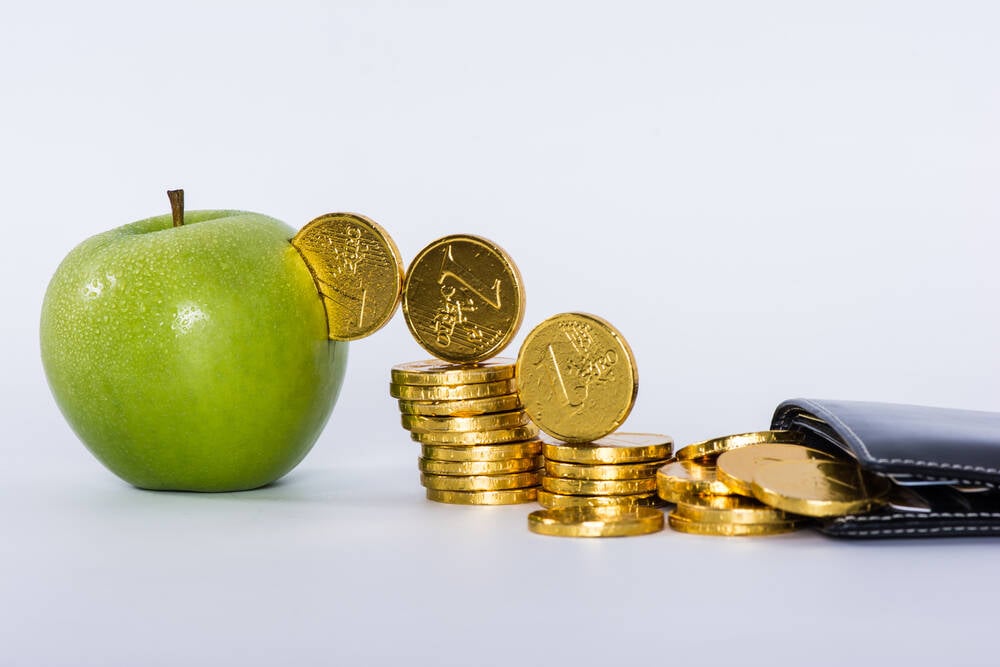A developer of mobile sports apps has filed a proposed class-action lawsuit against Apple, seeking to recover commissions iBiz allegedly collected in violation of a federal injunction intended to allow developers to use alternative payment systems. The complaint [PDF], filed on May 2 in California Northern District Court by law firm Hagens Berman on behalf of Pure Sweat Basketball, seeks class-action status to represent other affected iOS developers. "It appears as though Apple has been caught red-handed blatantly seeking to undercut the law," said law firm cofounder Steve Berman in a statement .
"We believe app developers deserve a fair market to promote and sell their products, and the world’s largest corporation doesn’t get to bully them out of this billion-dollar revenue stream." This particular lawsuit is an outgrowth of a long antitrust dispute between the fruit-themed tech giant and Epic Games, which took to court in a bid to loosen Apple's grip over iOS developers. As that case dragged through various legal steps, Pure Sweat Basketball says that Apple forced iOS developers to pay commissions on external purchases that they were legally entitled to avoid under a federal court injunction between January 17, 2024, and May 1, 2025.

Now they want to claw it back. Some legal background is necessary to understand the issue here, so bear with us. In the original lawsuit, Apple mostly won against Epic Games, but lost on one count in September 2021.
The court found that Apple's anti-steering rules, which prohibited iOS developers from informing app users about external payment options, were anti-competitive. After Apple exhausted its appeals in April 2024, the company was supposed to eliminate those rules and let developers tell their users they could pay for in-app purchases outside the App Store. Yet, as Judge Yvonne Gonzalez Rogers noted in a scathing order issued on April 30, 2025, Apple instead introduced new fees and erected additional barriers, such as "scare screens," full-page warnings designed to dissuade users from clicking external payment links.
In particular, Apple's revised rules imposed commissions of 27 percent or 12 percent (for smaller developers) to link to external payment resources, instead of the standard 30 percent/15 percent rate available using Apple's payment system. But Judge Rogers noted that these rules didn't really reduce costs, and potentially raised them, while adding usability barriers. "In the end, Apple sought to maintain a revenue stream worth billions in direct defiance of this Court's Injunction," the judge wrote.
Unsurprisingly, the revised rules did not find a lot of takers. As Judge Rogers wrote, "Of the estimated 136,000 developers in the App Store, only 34 even applied to offer linked-out payments (as of May 2024)..
." So in her order last week, Judge Rogers held Apple in civil contempt, ordered the removal of the restrictive policies, and referred the matter to the US Attorney's Office for potential criminal contempt. Among other court-defying acts, Rogers said, Apple VP of finance Alex Roman "outright lied under oath.
" Apple, which did not respond to a request for comment, has signaled its intent to appeal this latest setback. But for now, Apple has scrapped the 27/12 commission and scare screens in the US for apps sold through its US App Store only, as explained in a revision to its rules published on May 1. The Pure Sweat lawsuit is simply saying that Apple should have been allowing this all along, and is seeking to reclaim "monetary relief by way of restitution, damages, and disgorgement of all profits unjustly received and retained by Apple during the Class period," along with punitive damages and legal fees.
"Had Apple complied with the injunction as issued, Apple’s own studies show that developers would have saved potentially billions in in-app purchase commissions," the complaint says. "These are ill-gotten gains and Apple should not be permitted to retain them." ®.
Technology

Developer sues Apple to claw back commission payments

Just days after judge held Cupertino in contempt over Epic antitrust injunction A developer of mobile sports apps has filed a proposed class-action lawsuit against Apple, seeking to recover commissions iBiz allegedly collected in violation of a federal injunction intended to allow developers to use alternative payment systems....















